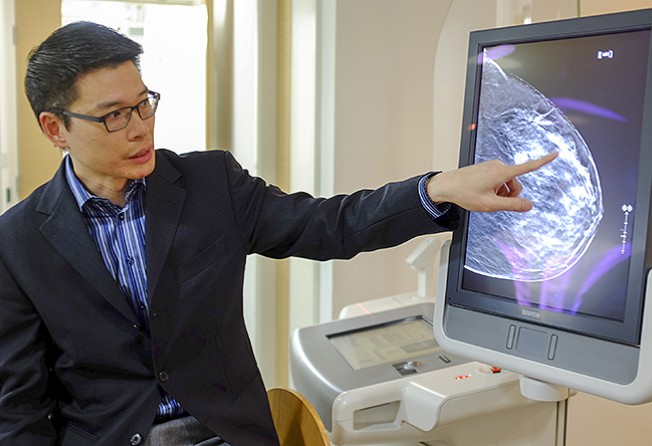Lay bare the risks behind rising breast cancer cases in Hong Kong
Josette Chor calls for Hong Kong-wide screening for breast cancer and a survey of the risk factors that are contributing to a big increase in cases

The chief executive proposed in his policy address to subsidise bowel cancer screening for higher-risk groups, marking a major step in local cancer prevention.
Next, the government needs to do the same for Hong Kong women by subsidising breast cancer screening and supporting in-depth research to identify high-risk groups.
While bowel, or colorectal, cancer is the most common cancer in Hong Kong, breast cancer is the most prevalent among local women. The number of cases is rising at an alarming rate, almost tripling from 1,152 in 1993 to 3,419 in 2011. Nine women are diagnosed with breast cancer every day, with at least one of them eventually dying from it. The median age of patients in Hong Kong is 54; some 10 years younger than Caucasian women.
Breast cancer isn't just life-threatening. It disrupts everyday life and upsets patients' psychological well-being. According to a report published by the Hong Kong Breast Cancer Foundation last September, in which data from 7,990 patients was analysed, 34.1 per cent felt depressed after learning about the diagnosis and 19.9 per cent refused to accept what was happening to them.
Meanwhile, breast cancer treatments can cause changes to the body and bring serious side effects such as severe vomiting and postmenopausal symptoms.
There have been multiple studies evaluating screening mammography and showing how early detection and early treatment would result in less aggressive treatment that helps prolong life expectancy and improve quality of life.
The World Health Organisation recommends that mammography screening should be provided in countries with good health infrastructure. Population-wide screening is now available in more than 30 countries and territories, including in Singapore and Taiwan, but not in Hong Kong.
In addition to subsidising breast cancer screening, the government should consider carrying out a city-wide study of the important risk factors. According to the report on breast cancer, the most prevalent lifestyle-related risk factors found in patients were: a lack of exercise; high level of stress; being overweight; and, a diet rich in meat or dairy products. In contrast, only 4.5 per cent of the patients had ever smoked.
According to the World Cancer Research Fund, 12 per cent of breast cancer cases in mainland China can be attributed to being overweight and 8 per cent are preventable by maintaining physical activity. Moreover, alcohol is a proven carcinogen in breast cancer. In the UK, alcohol consumption is attributed to 22 per cent of breast cancer cases, especially among premenopausal women. Compared with smoking, wine consumption also seems to be a more important local risk factor, given that it is becoming more popular in Hong Kong.
Having identified the lifestyle-related risk factors, the government should fund a large-scale case study that compares breast cancer patients with the rest of the population, to determine the most significant risk factors that contribute to the rise of breast cancer in Hong Kong.
Josette Chor Sin-yee is assistant professor at the Jockey Club School of Public Health and Primary Care at Chinese University of Hong Kong